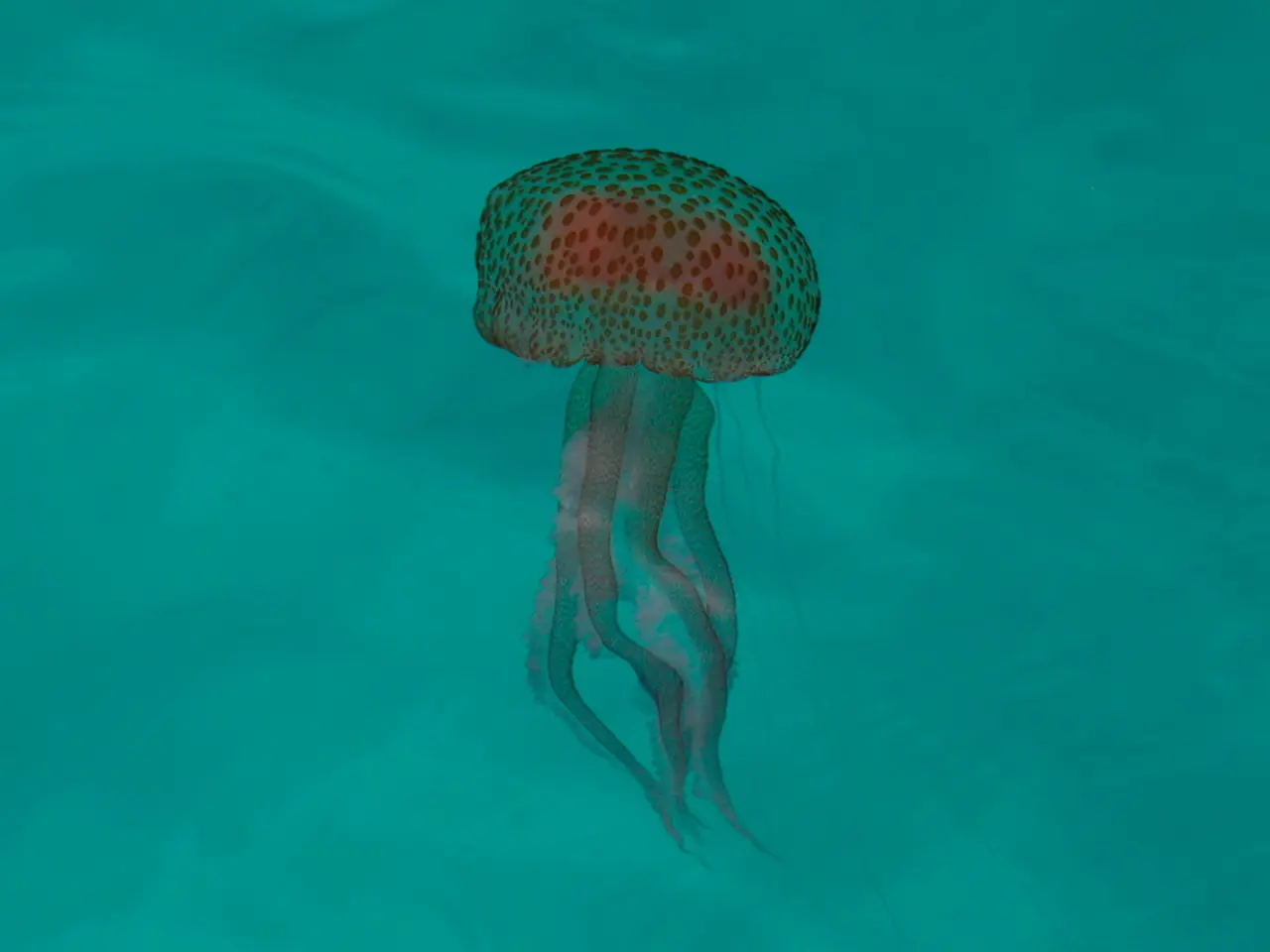Giant jellyfish immobilize France's largest nuclear facility
Gravelines Nuclear Power Plant Shuts Down Four Reactors Due to Jellyfish Bloom
The Gravelines nuclear power plant in northern France, the largest in the country with six reactors, has temporarily halted operations for four of its blocks due to a massive swarm of jellyfish clogging the filter drums of the plant's cooling water pumps.
The incident occurred on Sunday evening, with three units automatically shutting down, and the fourth on Monday morning. The operator Électricité de France (EDF) announced the shutdown, stating that the jellyfish physically blocked the cooling system's intake, forcing a temporary shutdown to protect the reactors.
The type of jellyfish causing the issue is currently under investigation. However, it's known that warming oceans and low-oxygen "dead zones" (exacerbated by agricultural runoff and climate change) create ideal conditions for jellyfish blooms to increase globally. These large jellyfish swarms are becoming more frequent, posing operational risks to coastal nuclear and other industrial facilities relying on seawater for cooling.
The shutdowns were precautionary and did not compromise plant safety, personnel safety, or the environment. However, the jellyfish were harmed by being trapped in the system. The event signals an ecological ripple effect due to climate-driven changes in marine ecosystems with direct consequences on human infrastructure.
The reactor blocks' restart date is initially unclear. Maintenance work is currently being carried out on two of the plant's units, and no specific timeline for the restart of the reactor blocks has been provided.
Despite the shutdown, there is no reported impact on power supply, as other power plants can compensate for the outage at the Gravelines power plant. The incident at the Gravelines power plant is not the first such incident involving jellyfish; a Swedish nuclear reactor was also previously halted due to jellyfish.
Production at the Gravelines power plant is temporarily at a standstill due to the shutdown and maintenance work. The spokesperson did not provide a specific timeline for the restart of the reactor blocks.
In other news, Hamburg's Energy Works is investing 2.5 billion Euros in 150 major projects, aiming to switch from coal to gas. This transition is part of a broader global effort to reduce carbon emissions and combat climate change.
- Gravelines nuclear power plant shuts down four reactors due to jellyfish
- Jellyfish Bloom Forces Shutdown of French Nuclear Plant
- Jellyfish Bloom Shuts Down French Nuclear Plant
- The shutdown of four reactors at the Gravelines nuclear power plant in France is a result of a massive swarm of jellyfish clogging the filter drums of the cooling water pumps, signaling an ecological ripple effect due to climate-driven changes in marine ecosystems with direct consequences on human infrastructure.
- The temporary halt of operations at the Gravelines nuclear power plant, the largest in France, was caused by a jellyfish bloom, which physically blocked the cooling system's intake, leading to precautionary shutdowns to protect the reactors.
- Despite the investments in environmental-science, finance, and energy-related projects like Hamburg's Energy Works transition from coal to gas, unexpected challenges like jellyfish blooms in marine ecosystems, exacerbated by climate change, pose operational risks to industrial facilities, as demonstrated by the shutdown of four reactors at the Gravelines nuclear power plant in France.




